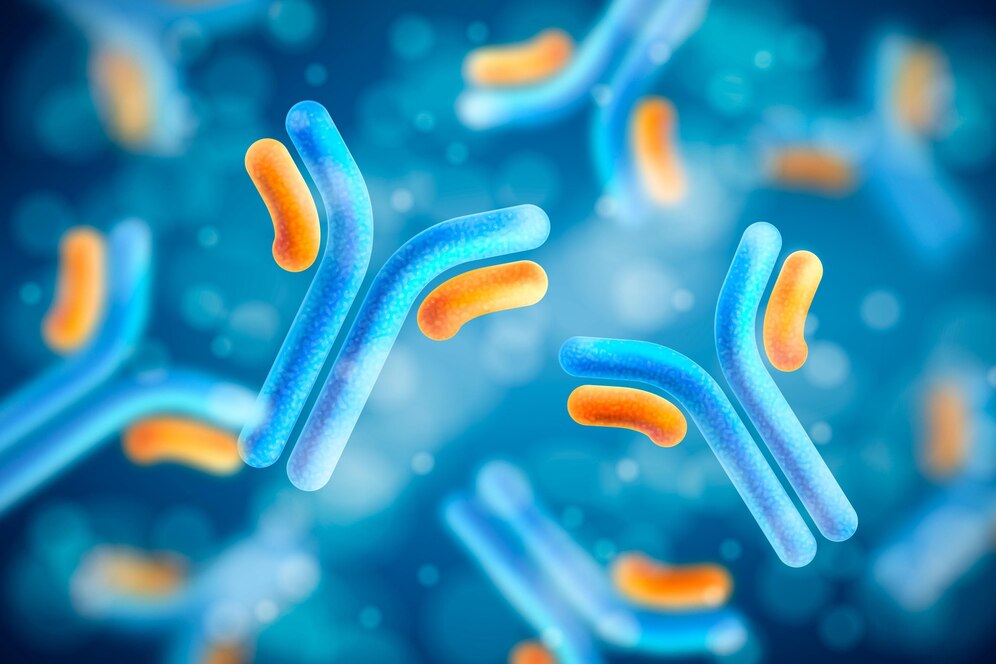Antibody Stability Analysis
Biotherapeutic products based on monoclonal antibodies (mAbs) are the fastest growing category of therapeutics entering the clinical study. Stability is crucial for the development of therapeutic mAbs and genetically tailored antibody fragments. Poor stability may affect antibody expression levels, resulting in fractional populations of non-functional of misfolded material, or leading to the formation of large and potentially immunogenic protein aggregates over time. Antibody stability can be divided into three types: conformational stability, colloidal stability, and chemical stability. At Creative Biolabs, we offer a wide range of analytical techniques to help gain insight into mAb stability according to the ICH guidelines.
Conformational Stability
 Distributed under Freepik License, from Freepik.
Distributed under Freepik License, from Freepik.
Conformational stability describes the ability of the protein to maintain its native structure, to be properly folded. Under stressed conditions, such as high temperature, antibodies undergo a transition from the folded to unfolded state, thereby exposing hydrophobic patches that are usually buried in the native protein. The techniques of choice for measuring unfolding temperatures and thermodynamic parameters during protein unfolding is differential scanning calorimetry (DSC). The melting temperature (Tm), at which the transition occurs, is used as a surrogate parameter for the thermal stability of the antibody. One approach to determine the conformational stability of antibodies is to follow this transition in temperature gradients, called a thermal shift assay or differential scanning fluorimetry (DSF). This method is based on the measurement of extrinsic probe fluorescence, which can increase significantly during the antibody unfolding.
On the other hand, aggregates tend to form due to the interaction between exposed hydrophobic regions. For aggregation analysis, we are capable of offering a range of analytical tools, including analytical ultracentrifugation (AUC), size-exclusion chromatography (SEC), dynamic light scattering (DLS), etc.
Colloidal Stability
Colloidal stability is the stability of protein with the native structure in solution to avoid aggregation, precipitation, or phase separations. Computational methods can be used to calculate the theoretical pI, which can be used to estimate the stable pH range of potential formulations. Besides, the protein has a propensity for self-association, leading to subsequent aggregation of phase separation. Dynamic light scattering (DLS) can be used to measure the KD, which indicates the interaction between molecules. Another manifestation of colloidal instability is the phase separation, which can be quantified using polyethylene glycol (PEG).
Chemical Stability
Chemical stability is the stability of amino acids and the covalent bonds between them and between different protein domains. Chemical instability can be caused by chemical modification of mAb amino acids, including C-terminal processing of lysine residues, N-terminal pyroglutamate formation, deamidation, glycation, and oxidation. These modifications can be characterized using various techniques, including chromatography-based techniques, charge-based techniques, and mass spectrometry (MS)-based techniques. The chemical stability can be predicted by analysis of these chemically unstable regions.
Serum Stability
The highly complex nature of plasma can impact on the physiochemical properties of mAbs. As a result, the serum stability should be appropriately assessed using both in vitro and in vivo methods. For in vitro analysis of antibody serum stability, the antibodies can be incubated in serum from different species for a period of time. The samples can then be used for chemical modification analysis or functional characterization. For in vivo experiments, serum from animals injected with the antibody drugs can be collected for further analysis.
Forced Degradation Studies
Forced degradation study is widely conducted during the development of recombinant mAb therapeutics and related products. It can provide useful information during the early stages of development about the manufacturability of candidates and lead selection. Besides, it is a part of early formulation development in identifying appropriate conditions for long-term storage of drug substance and drug product. Creative Biolabs supports forced degradation programs with studies that use different extreme storage conditions, including high temperature, freeze-thaw, agitation, high pH, low pH, light exposure, etc. Various analytical methods were used to assess changes in the physicochemical properties of the antibodies.
Besides, Creative Biolabs also offers antibody stability improvement services, providing a sequence-oriented, partially-rational engineering strategy for improving the thermal stability of antibody and antibody fragments. If you are interested in our services, please contact us to discuss your requirements.
For Research Use Only.
